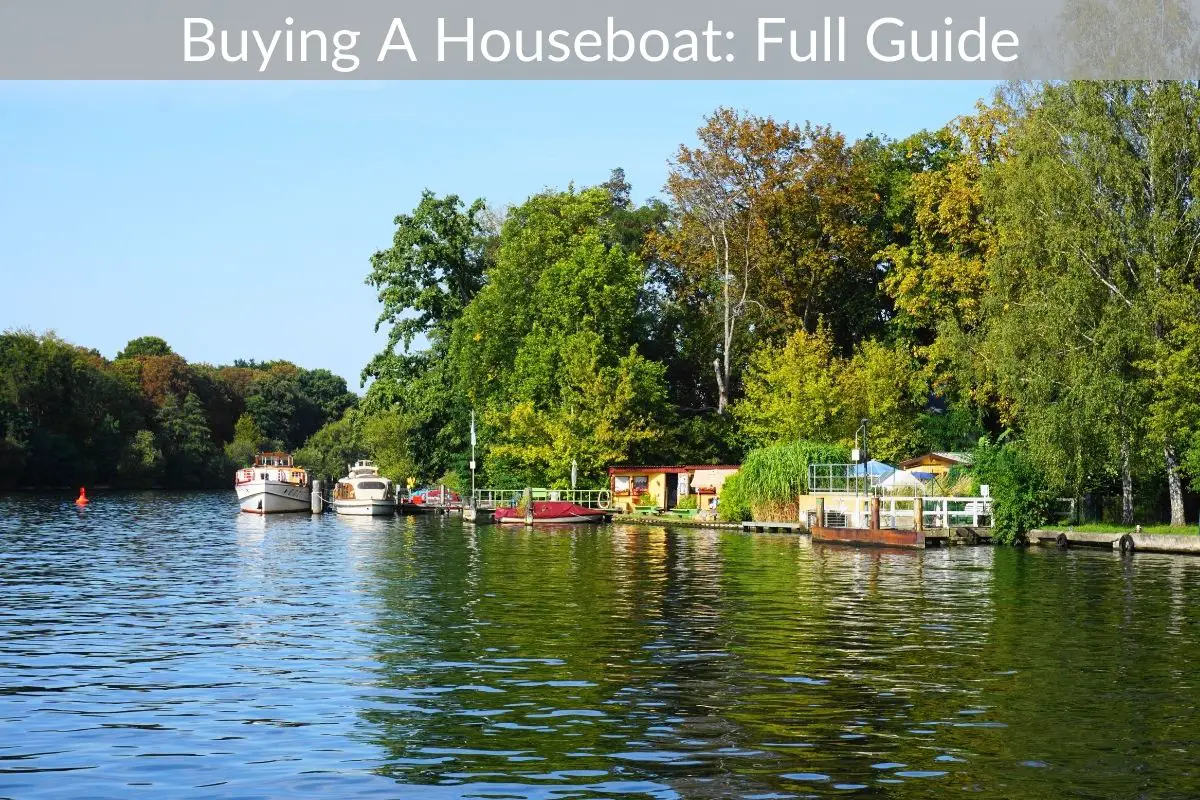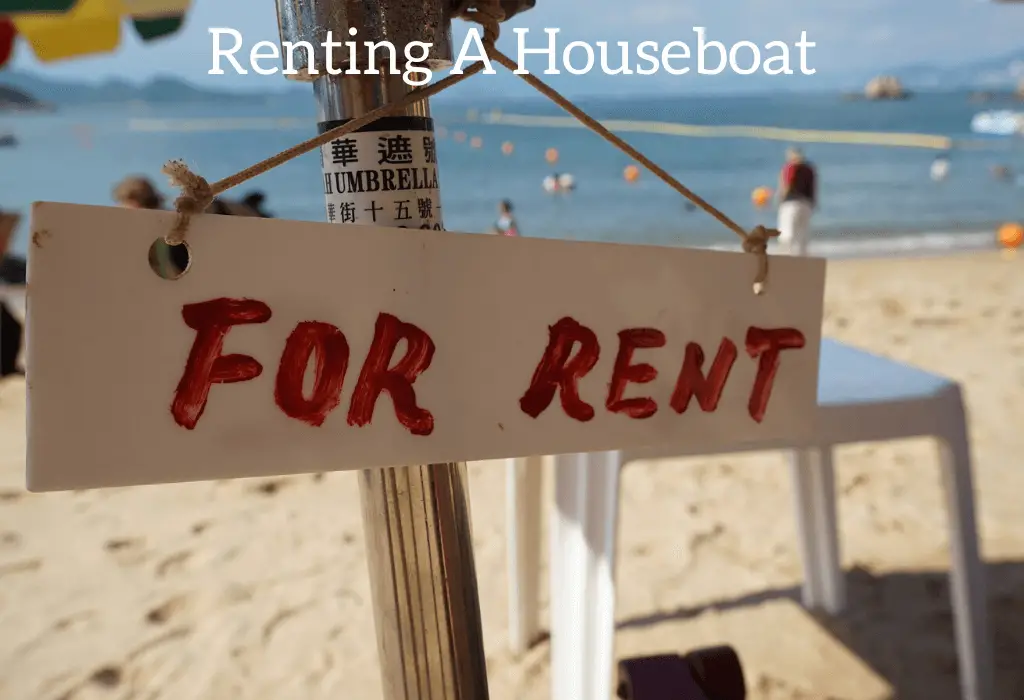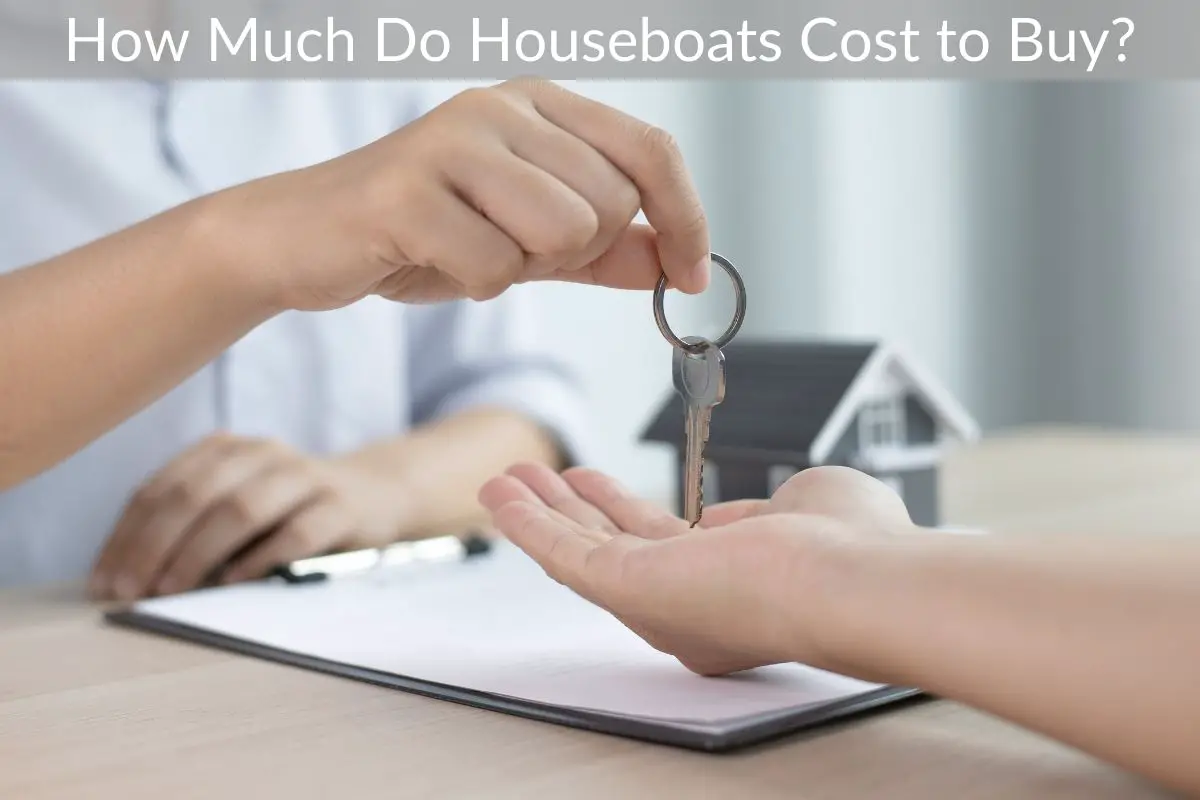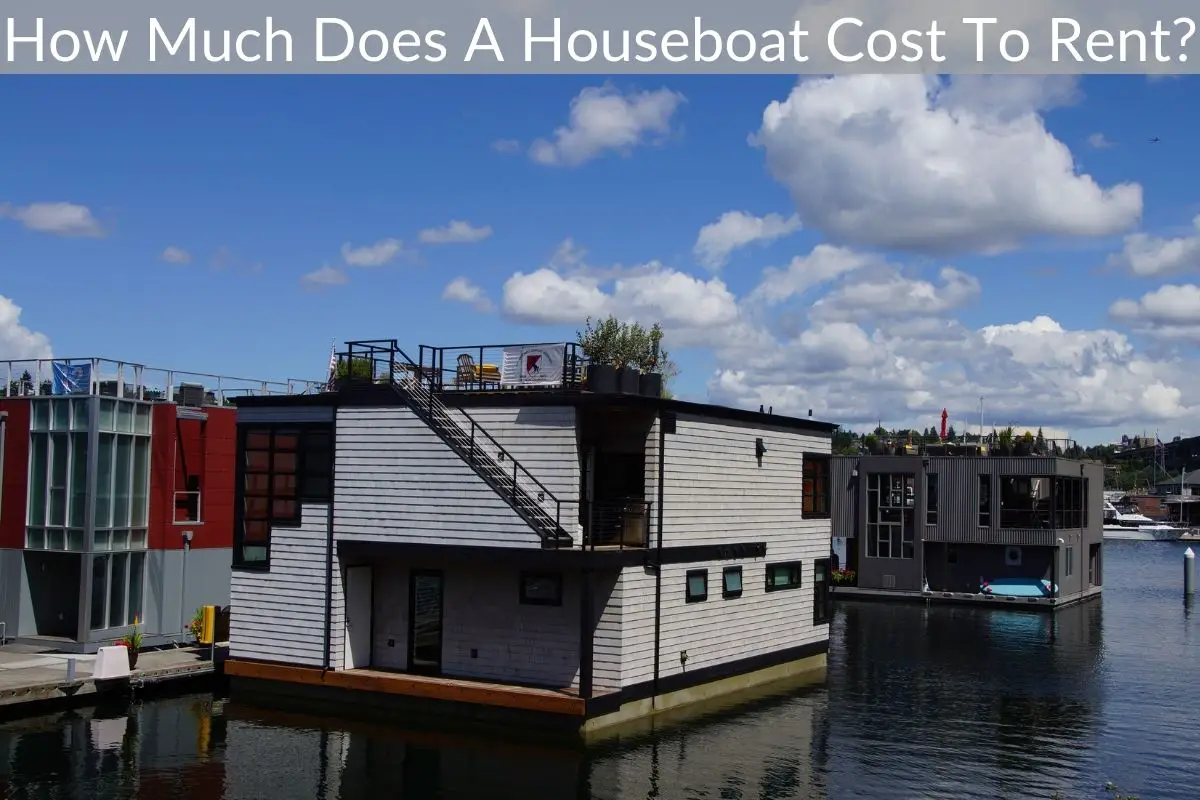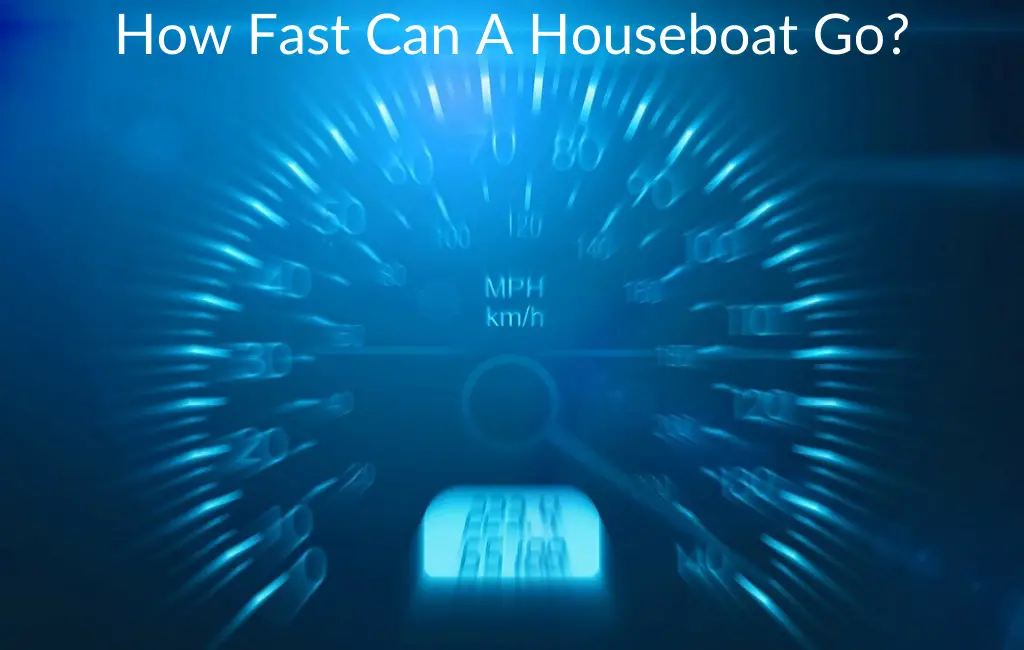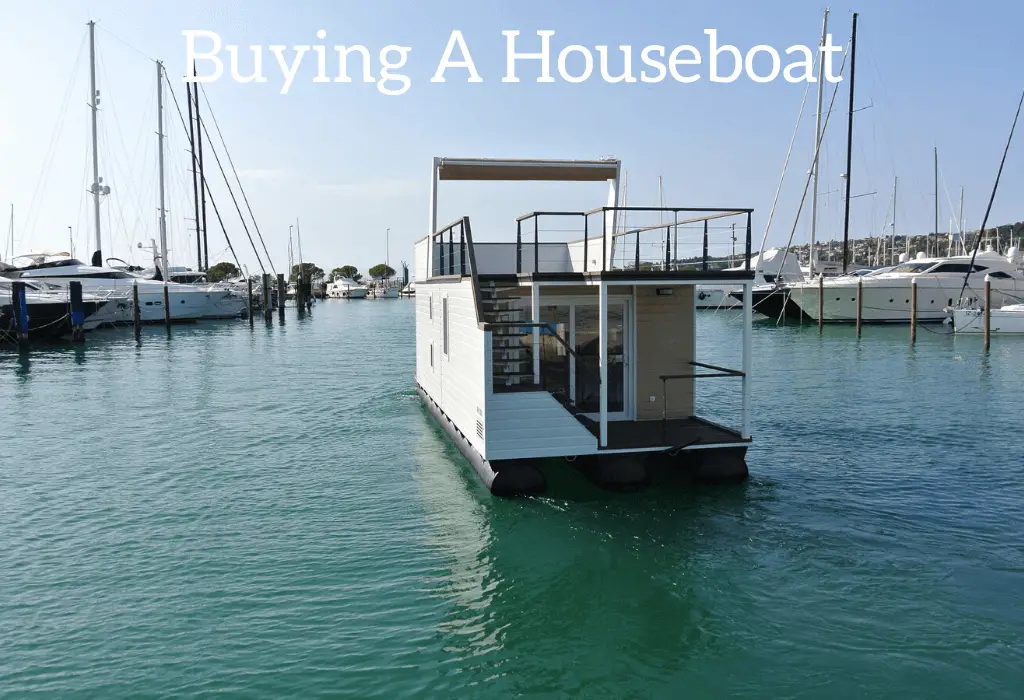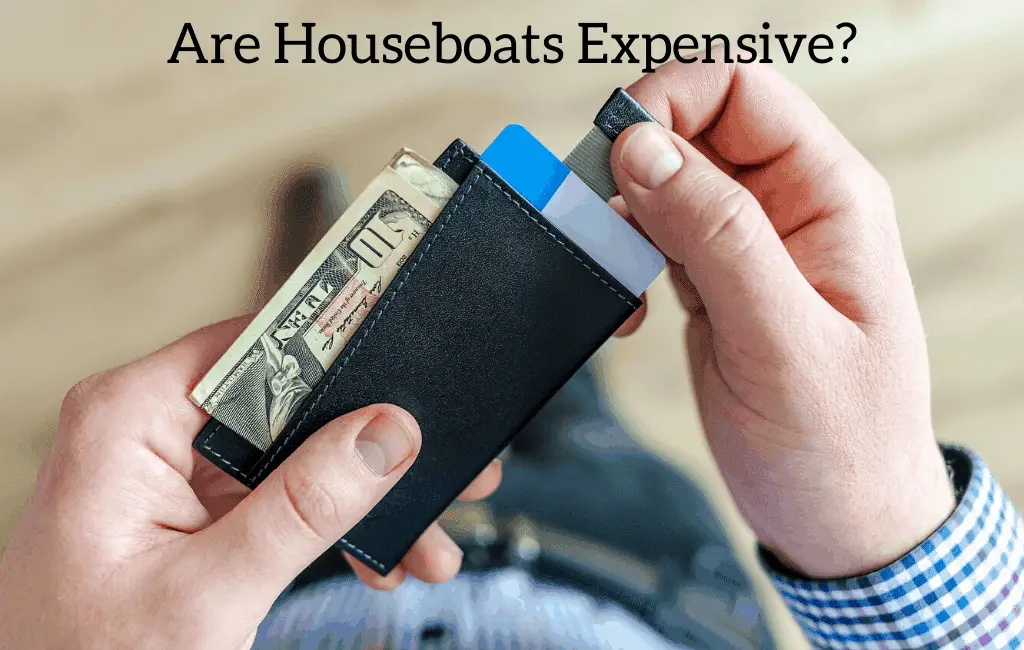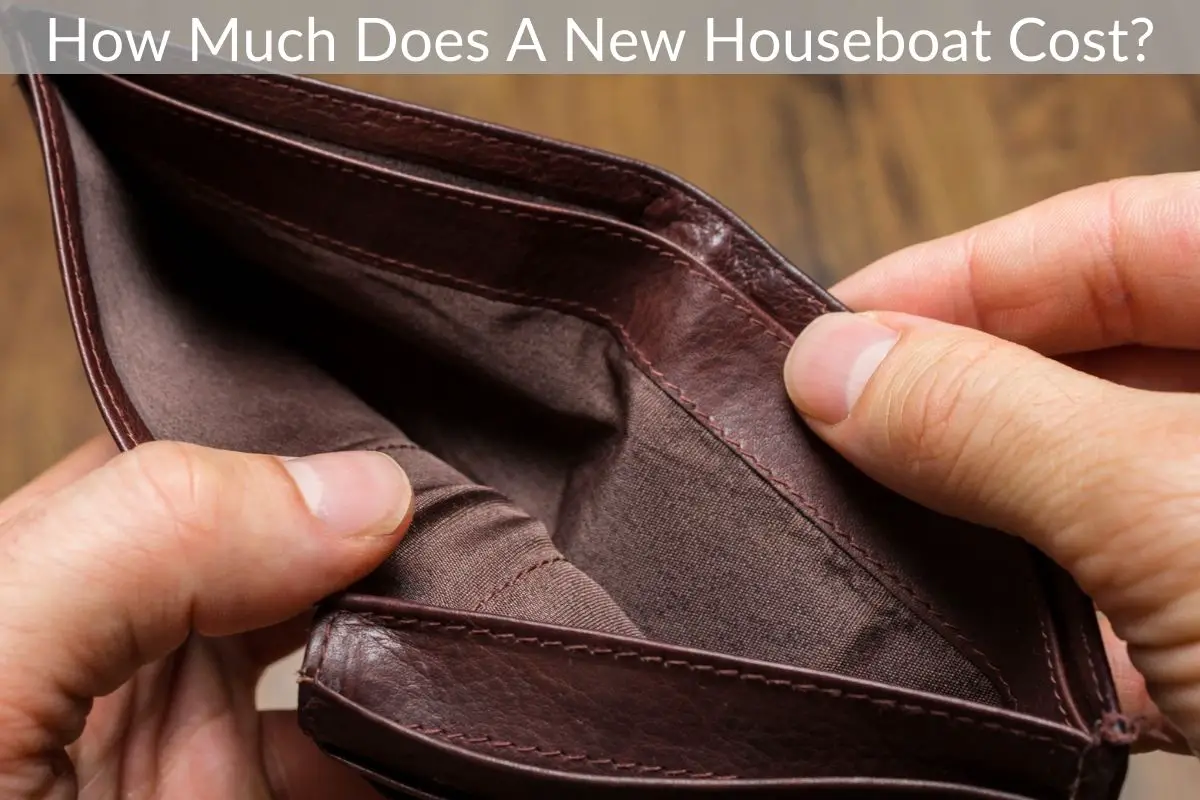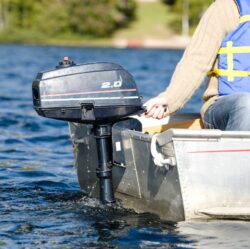Accidents happen anywhere and anytime. It is our job to make sure that we protect ourselves if these accidents happen with anything that we own or are using. This exactly what insurance is for, such as those for life or even your car. But did you know that there is houseboat insurance and it is just as important?
*This post may contain affiliate links. As an Amazon Associate we earn from qualifying purchases.
Yes, if you own a houseboat, then I highly recommend that you insure your houseboat in case an accident happens to cover your costs and the costs of whatever or whoever you think. It is important for you to find the best insurance policy that meets your needs and your budget.
With that said, you might be wondering how much is houseboat insurance?
The cost of houseboat insurance varies greatly depending on the value of your houseboat, where your boat is at as well as many other features. For most people the insurance will cost between $100-$300 a month.
That is certainly a wide range and makes it difficult to plan so to get a more exact quote you will need to get a real quote by giving them the exact information about your houseboat, your location, and other risk factors.
In this article, we will take a more in depth look at the general cost of houseboat insurance and other vital information that you may need as you navigate this new area.
How Much Is Houseboat Insurance?
When it comes to houseboat insurance, the rates can differ depending on the insurance companies, marine surveys, and the value and size of your houseboat. There is no general consensus on the cost of houseboat insurance, but there is a general fee for marine surveys.
Usually, marine surveys can go from $10 per foot to about $30 per foot, which is determined by the extent of the houseboat insurance policy that you desire.
Marine surveyors are people who carry out inspections of marine vessels to generate a report on their wellbeing. When it comes to houseboat insurance, you may have to pay a marine surveyor to create a report on how much you should pay for insurance.
It is also recommended that you pay the few extra bucks to hire someone who is well-trained and certified to carry out this survey and outline the reasonable condition of your houseboat. They can also identify the areas that you should repair or improve upon before getting the insurance.
Why Do You Need Houseboat Insurance?
Houseboat insurance offers coverage for your houseboat. This is especially important when your houseboat costs tens or hundreds of thousands of dollars. The insurance will financially protect you if there is property damage or injury when you are operating your houseboat.
It can also be used to financially cover your investment in your houseboat, especially if it was damaged by someone else who does not have adequate insurance or money to cover the expenses.
With these valid reasons, it is fair to say that you should not only consider getting insurance for your houseboat but you 100% need to get it!
If you own a houseboat, one of the first things you need to know is how much houseboat insurance will cost. If you haven’t purchased insurance before, you might be wondering what your policy will cover. There are a few factors to consider before you purchase coverage, such as the value of your boat. Read on to learn about the costs associated with houseboat insurance and marine surveys. We’ll also discuss the value of a tender.
Cost of houseboat insurance
If you plan to use your houseboat for traveling, you must know how to find the best houseboat insurance coverage. Insurance premiums depend on the type of houseboat, its location, and its usage. Low-use houseboats have the lowest premiums. Houseboats that are used by several people have higher premiums. Also, the location of the houseboat matters, as houseboats in hurricane-prone areas have higher premiums.
You must be aware that certain equipment on a Houseboat has a short lifespan and is subject to greater wear and tear. Therefore, insurance companies will pay for repair of the damaged vessel to its original specifications, minus depreciation. Replacement cost insurance may not cover depreciation, but it will replace the damaged equipment. Houseboat insurance may include other coverage, including extra coverage for a tender. The cost of houseboat insurance may include additional expenses, such as the installation of entertainment systems or kitchen appliances. A policy may also cover the cost of a depth finder or a fishing rod, or any other type of equipment that was permanently attached to the houseboat.
The cost of houseboat insurance varies, but it can be as little as $500 per year for basic coverage. Depending on the size of the houseboat and the facilities it offers, premiums can go up significantly. Houseboats are often required by law to have marine insurance, which provides basic damage coverage as well as a wide variety of optional coverages. If you’re not familiar with the intricacies of houseboat insurance, you may want to contact a boat-specific insurance company.
Houseboat insurance will protect your investment in the houseboat and prevent others from causing damage to it. Some policies also cover damage caused by other boats. Insurers may ask for marine surveys before offering coverage. Make sure to hire a trained marine surveyor for your houseboat insurance. A marine survey will help you determine what the houseboat is worth. The insurance company will then pay out the agreed-upon amount for the damages.
Cost of marine survey
The cost of a marine survey can vary widely, depending on the type of survey you need, whether you’re insuring a new or used boat, and the location of your vessel. Surveyors charge by the foot, so a short haul at a boat yard might cost around $15 per foot, while an engine or sailboat rig inspection might cost up to $600. You may also want to consider whether the survey will include a mechanical inspection.
Insuring your houseboat requires a marine survey. Even if you’re only insuring it against storm damage, you can still save money by performing your own pre-inspection to determine whether any structural defects are present. Most insurers require a recent marine survey, but you can save money by attempting a DIY pre-inspection yourself. Before you make a purchase decision, you should also arrange to haul the boat from the marina.
The cost of a marine survey is generally covered by your policy. The surveyor will inspect the boat’s structural integrity by taking measurements and assessing its mechanical condition. They’ll also inspect the propeller, which spins to produce a forward push. Then, they’ll check for any leaks, damage, and wear and tear. If anything is damaged, the surveyor will recommend a repair, which will save you a lot of money in the long run.
Depending on your insurance needs, you may choose to have a pre-purchase survey done by a certified third party. The cost of a survey varies, from a few hundred to several thousand dollars. The survey can be conducted on both new and pre-owned boats. If you plan to purchase a used boat, a pre-purchase survey is highly recommended. The survey will reveal any potential issues that may arise down the line. If you’re insuring a financed boat, the lender may also require a survey. The valuation will determine the loan amount and down payment you’ll need.
Whether or not you’re purchasing your new boat, you’ll need to pay for the marine survey. These pre-purchase surveys will cost you roughly $18 to $24 per foot, depending on the length of your boat. You’ll want to discuss this with your preferred insurer before purchasing your boat. Once you’re sure you can afford the survey, you’ll be much happier with your new houseboat.
Cost of boat insurance
Houseboat insurance isn’t always cheap. The price of your policy depends on a number of different factors, including the type of boat, the number of people on board, and whether you use it for fishing or tow water skis. You might even be able to save money on your premium by changing brands and companies every few years. Here are some tips to keep in mind when determining the cost of your insurance policy.
If you own a sailboat or personal watercraft, the insurer will agree on a value for the boat, and you will pay that amount if it is damaged or stolen. An agreed-value policy will cover most boats, but some types of boats will exceed this value. To make sure your boat is properly protected, consider taking out extra coverage for the tender or personal watercraft. You can also get an agreed-value policy for your houseboat, if you have one.
Houseboat insurance premiums are determined by a number of factors, including the age and length of the boat, the amount of coverage you need, the number of people on board, and the value of the hull. Your primary location and the horsepower of your boat are also factors. Another important factor in determining the cost of your houseboat insurance is how often you plan to use it. You can save money by taking a boating safety course. Insurers tend to reward boat owners who take courses in safe boating and take care of their vessel.
Your budget will determine your exact premium. A $20,000 boat will cost around $300 annually. A $500,000 yacht may cost as much as $5,500. However, it will likely cost around $2,500 per year. Considering that boat insurance costs are much higher than car insurance, it’s important to know what factors affect your insurance cost and how to reduce it. If you have more money to spend, consider paying monthly or annual premiums instead of yearly.
One of the best ways to reduce the cost of houseboat insurance is to find an independent insurance agent. Insurance agents specialize in many types of insurance and will get to know your needs and your houseboat so that they can recommend a policy that suits your budget and protects your boat from damage. They will also explain all the fine print so that you can make an informed decision. The more information you can get on insurance, the better off you will be.
Value of boat
A houseboat policy pays out a certain amount based on the agreed value of the boat. This amount may be supported by the price you paid for the Houseboat, or by sales records of similar boats. With an agreed value policy, you’ll be reimbursed for the cost of repairing or replacing the Houseboat or damaged equipment. Your policy may pay for repairs or replacement without depreciation. However, some policies may pay only the replacement cost if you’ve paid for additional coverage such as a tender.
If you have multiple houseboats, you may want to consider a cost-sharing arrangement to lower your premiums. This can be a great option if you and your partners have similar income levels. Splitting the costs for premiums and deductibles will reduce your out-of-pocket expenses. Likewise, if you and your partner share houseboat ownership, you should list each other as partners. Houseboat insurance brokers, like Evolution Insurance Brokers, can pair you with customized insurance policies that fit your boat’s unique needs.
If you have a small boat that’s under 26 feet long and has a lower horsepower, it’s probably worth the cost of a boat insurance policy to cover it. However, your policy will likely only cover a portion of the costs if it’s stolen, damaged, or destroyed by an uninsured boater. That’s why you’ll want to look into a comprehensive boat insurance policy.
A houseboat insurance policy will cover damage resulting from several things. Some of the most common damage that can be covered under this type of insurance policy is sinking or capsizing. Other things covered under a houseboat insurance policy are fire, vandalism, and storms. And last but not least, collision and theft. Houseboat insurance will keep you covered. It’s a small price to pay to enjoy the pleasures of boating.
More On Marine Surveys
Marine surveys may be an additional cost that you have to bear when it comes to houseboat insurance. As stated before, it is recommended that you spend the extra cash to hire a marine surveyor who is well trained and skilled at their job.
Marine surveys are generally conducted when a houseboat is more than ten years old. The cost of the marine survey varies depending on the length of your houseboat and its value. Marine surveys also apply to different situations, such as selling or financing your houseboat.
It plays the role of giving you important information about your houseboat so that you can give it an accurate price for buying and selling and also an accurate number for the insurance.
In a marine survey, it will evaluate your houseboat to tell you:
- Current Worth
- Current State
- If it is safe to navigate the waterways
What Are The Different Types of Houseboat Insurance?
There are different types of houseboat insurance coverage that you should be aware of. They include:
- Medical Payments: If there are medical injuries to the passengers of your houseboat, this insurance will cover the medical expenses.
- Fishing Equipment: This insurance will cover the cost of lost fishing equipment.
- Watercraft Liability Insurance: If during the operation of the houseboat, there is property or bodily damage, this insurance will cover the costs.
- Personal Effects: The cost of damaged personal goods are covered with this insurance policy
- Uninsured Boaters: If there is a collision with a boater who is uninsured, this insurance policy will cover the expenses.
- Comprehensive: As the name suggests, comprehensive insurance covers a range of disasters such as storms, theft, collision, sinking, capsizing, and many more.
- Fuel Spill Liability: This covers the expenses and clean-up costs if there is a fuel spill.
- Living Expenses: This insurance covers the costs of living if your houseboat is in for repairs because of an accident or incident.
This list is not exhaustive. There are many more choices available depending on the insurance company that you work with. Moreover, your choice of insurance policy also depends on the insurer of your choice, as well as the country or state you live in.
Those who live full-time on a houseboat may have different insurance needs than, for example, someone who rents houseboats to customers.
Be sure to talk with your agent and make sure you’re getting the coverage you need to protect your finances without spending a fortune.
What Are The Factors That Will Affect Your Houseboat Insurance?
Insurance companies determine the amount of money you have to pay for your insurance premium. It is based on a variety of factors, such as the worth of the hull of your houseboat. Other factors that also play a significant role include:
- The type of occasions that you use your houseboat, such as daily living or just for vacation.
- Whether you allow other people to borrow or rent your houseboat
- The location where your houseboat is used. Certain aspects of your houseboat’s site, such as being on a river, an ocean, or in an area prone to natural disasters.
- If you usually rent out your houseboat, insurance will be based upon the renter’s background and experience.
- Do you stay in one location or do you usually travel to various locations? This will also factor into the amount of the insurance premium.
What To Look For In A Houseboat Insurance Policy?
The search for the best houseboat insurance policy for you may be a daunting task. You must understand your rights as a customer and gather information about the different insurance policies and companies. To make this process a smoother one, here are a few points that you should keep in mind:
- How often does the company carry out marine surveys
- Are there any discounts available? And what are the criteria that have to be met?
- What are the deductibles for your chosen insurance policy?
- If you completed certified courses by the Red Cross, Coast Guard, and so on, would you receive discounts on your insurance policies?
- Are there limits under which your houseboat will be covered?
Do Houseboats Need Insurance?
Do houseboats need insurance? If not, it may be time to get one! There are a variety of reasons to purchase a houseboat, from the mobility to the minimal yardwork. You can also catch your own meals, and enjoy nature right on your doorstep. With the proper insurance coverage, you can have the peace of mind you deserve, even if your houseboat is in the water. In this article, we will discuss the importance of houseboat home insurance, and some of the things to look for.
Replacement cost
Insurance for Houseboats should be purchased with a replacement cost policy. This type of insurance covers the hull and contents of a Houseboat. Replacement costs are the cost to replace damaged items with new ones. In some cases, replacement cost insurance will also cover the depreciation of damaged items. In some cases, this type of insurance is also known as agreed value. In such a situation, the insurer will pay for repairs and replacements, depending on the policy’s terms.
If you’re insuring your floating home, you should know that it can be expensive to repair or replace. In the event of a catastrophe, insurance can cover the cost of replacing your floating home. A good policy will cover the cost of any repairs or replacements, minus any deductible you may have. You should also be aware of any other special equipment that comes with your boat. For instance, you may have an installed boat cd player or an extra fuel tank. You’ll also need insurance for things like life preservers, flares, depth finders, and a lot more.
If you own a houseboat with a partner, consider cost sharing. A cost-sharing arrangement is an excellent way to spread the costs of insurance. Each owner should equally split the costs of the insurance, such as paying 25% of the deductible, 50% of the premium, and so on. If you’re co-owner, you should list each other as a partner on the policy. Evolution Insurance Brokers can match you with a customized replacement cost insurance policy for you.
You need liability insurance for your houseboat, too. Liability coverage protects you from lawsuits if someone were to get injured while on your boat. It protects you financially and protects your investment. Moreover, you’ll be protected from liability by others who have an accident on your boat. There are some limitations to liability coverage, but the policy generally pays for the repairs that need to be made. There are many other types of insurance that you can purchase to protect your houseboat.
Agreed value
Houseboats need insurance based on agreed values. Insurance policies pay out for the cost of replacing your houseboat, up to its agreed value. The higher the value, the more expensive the insurance. Deductibles can be a set amount or a percentage of the houseboat’s value. Higher deductibles reduce insurance costs. A survey of the houseboat by a marine surveyor can reduce premiums.
Another important difference between an ACV policy and an AAV policy is the way depreciation is handled. With an ACV policy, the insurer pays out a certain value for your damaged houseboat, but depreciation is taken into account when determining the payout. When this happens, you should get insurance for a Houseboat based on agreed value instead of an Actual Cash Value policy. AAV insurance is more expensive upfront, but it protects you from the cost of having to rebuild your houseboat.
A Replacement Cost policy agrees to replace your houseboat with a similar one if it is damaged or destroyed. However, it is only available until the boat is two or three years old. For example, if you own a $40,000 boat, you would get a replacement cost policy for $45,000 in case of a total loss. Some Replacement Cost policies are so generous that they pay out over the insured amount, sometimes by up to 20%. Once the boat has exceeded two or three years, it will automatically switch to an Actual Cash Value policy.
Actual cash value
If you own a houseboat, it’s essential to have insurance to cover any damages. There are two types of insurance policies: agreed value and actual cash value. The former pays out the same amount if your boat is stolen, damaged, or destroyed, while the latter pays you the actual cash value of the boat at the time of loss. Although both types of policies are beneficial, you should consider which type of coverage best suits your needs.
There are two primary types of insurance for boats: agreed value and actual cash value. The first type is more expensive than the other. With an agreed value insurance policy, you can make sure that the insurance amount you’ll receive is what you paid for the boat at the time of loss. In the event of total loss, the insurance company will pay the amount of the insured value, regardless of whether it’s more or less than the original price.
If you own a houseboat, it’s essential that you consider the actual cash value of the vessel in case of a loss. ACV policies are generally cheaper than agreed values. ACV policies pay out the actual cash value of a houseboat upon total loss, but depreciation is taken into account when determining the payout amount. The same is true for partial losses, such as a loss of use or damage to the water.
Another important consideration when buying houseboat insurance is choosing the right type of policy. Some insurance companies pay out less for the boat if it is damaged or destroyed, while others pay out the full amount. If you decide to go with the former, be sure to choose a plan that offers both. You’ll be glad you did. But be careful – a cheap policy does not necessarily mean the best option.
Umbrella liability
If you own a houseboat, then you probably need umbrella liability coverage to protect your assets. You must remember, however, that the amount of liability that can be awarded in a lawsuit may be much higher than what your policy will cover. If you don’t have the additional coverage that umbrella liability insurance provides, you may find yourself facing massive financial losses. A good insurance policy will pay off if the jury awarded more than the policy limits.
Getting a personal umbrella policy is also recommended if you own a speedboat or a personal watercraft. The higher the risk of damage and liability, the more likely you are to be sued. A personal umbrella policy is relatively inexpensive and does not have restrictions on watercraft, so it’s well worth a look. Unlike liability insurance, umbrella liability insurance will cover you in the event that passengers get hurt on your boat.
Personal property coverage is important for boat owners because it can help you cover any personal items that are on board. Most policies will cover personal property, but it may not be required in all policies. If you’re unsure of whether it’s necessary for your specific policy, contact your insurance professional. The coverage may be optional or automatic. Salvage coverage is also important, as it covers any boats that have been destroyed or stolen after being damaged by someone else.
Personal injury coverage is a cheap endorsement that can increase your coverage beyond liability and protection & indemnity. This coverage will pay for damages caused by wrongful arrest, false imprisonment, wrongful eviction, wrongful entry, or detention, as well as libel, defamation of character, and invasion of privacy. You may also want to consider adding this coverage to your homeowners insurance policy. It’s a small additional cost that will save you a bundle in the long run.
Personal injury liability
When you own a houseboat, you must ensure that you have the appropriate insurance for personal injury liability and property. Personal property coverage covers any items that are permanently attached to the boat, including fishing gear, entertainment systems, and electronics. It may also cover personal property items, such as clothing and bedding. Personal effects coverage is important if you ever want to replace an expensive piece of houseboat equipment. Personal effects coverage covers up to $100,000 of personal property and can help you protect valuables aboard the boat.
Houseboats can provide a relaxing and unique lifestyle, but they can also pose a number of risks to others. While they are generally safe vessels, accidents can occur. You can damage property, collide with another boat, or injure someone onboard. Because houseboats are often driven by inexperienced people, accidents can happen. You should always carry houseboat liability insurance to protect yourself against any liability claims that may arise.
Houseboats should also carry Uninsured Boater Coverage. This type of insurance pays for injuries caused by an uninsured boater. Uninsured Boater Coverage expands the Uninsured Motorist coverage to include this coverage as well. In addition, it will cover a boater’s medical bills if they cause an accident. Aside from being a necessity for houseboats, this coverage is also important for their tender.
When choosing a Houseboat insurance policy, make sure that the policy covers the full value of the floating home. Do not choose a policy that includes a deductible. Also, check whether the policy covers salvage costs. A deductible will be lower, but not eliminated. It’s important to check for these details before purchasing a policy. A properly-written policy can save you money and keep your houseboat safe.
In addition to covering personal injury liability and property damage, it can also cover the hull of the houseboat. Personal injury liability insurance also pays for any damages resulting from negligence and property damage. Your boat insurance policy will pay the actual cash value of the damaged item minus depreciation, which is based on the age of the damaged item. Most policies pay what is listed in your Hull coverage declaration page.
Crash damage protection
If you own a houseboat and are thinking about getting insurance, you should consider taking out an insurance policy. This type of insurance policy will pay out the agreed value if your houseboat is damaged in a wreck. It also pays out high limits for bodily injury and property damage liability, and offers rental reimbursement. Houseboat insurance is especially important if you have extra equipment or appliances installed on your boat, such as a cd player.
Choosing an insurance policy that covers personal property is an essential part of protecting your investment. Crash damage protection for houseboats is an affordable way to ensure your houseboat is protected. Personal effects coverage protects your belongings and covers up to $100,000. In the event of an accident, you won’t have to worry about losing your fishing gear, electronics, or binoculars. And because your houseboat is a permanent fixture, it’s important to protect your personal property with insurance.
Besides the benefits of insurance for houseboats, you need to consider its risks. Because houseboats are vulnerable to accidents, they are considered boats by insurers. Some insurers don’t even offer houseboat coverage, so it’s important to shop around before choosing the right insurance policy. However, even if you are not a boat owner, you still need insurance coverage to protect your investment. There are many types of houseboat insurance to choose from.
Personal injury coverage is an inexpensive endorsement to your liability coverage. It extends liability and protection & indemnity coverage to include coverage for things such as false arrest and wrongful eviction. It even extends to invasion of privacy. These are just a few of the many benefits of personal injury coverage. If you own a houseboat, make sure to protect your investment by getting an insurance policy. So, what are you waiting for?
The cost of houseboat insurance will depend on the location of your houseboat. If you live in a hurricane-prone region, your premiums may be higher. Insurers consider factors such as where your houseboat is located, the owner’s experience and the duration of its stay in the water. Houseboat insurance will also cover fishing equipment and skis. The policy is not a substitute for a houseboat insurance policy.
What Have We Learned?
As we all know, insurance plays a vital role in all of our lives. It is important to have financial coverage for different aspects of your life, such as your car, home, and also your houseboat. Since no one knows when accidents will occur, protecting your houseboat, especially when they are expensive, is the next best step to take.
This will allow you to cover the costs and expenses that you will incur if any disaster happens. Moreover, you must understand the different types of houseboat insurance. These factors affect your premium and the information regarding the insurance company that you hope to align yourself with. Once you have these covered, you are on your way to becoming a responsible houseboat owner.

